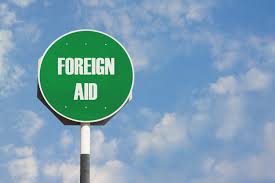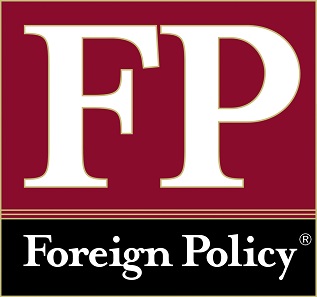I ask this question in light of the way dozens of countries now view the U.S.: think we’re snobs, don’t like capitalism or the free market, resent U.S. success in finance, do not like our politics (especially President Trump’s), don’t like our representative republic governing structure, and most feel we owe them something. So how much interaction with all of the foreign rancor about “all things U.S.” should we “need” to live with? And who decides that?

Typically the State Department is the front line of everyday dealing with foreign governments. Then the job falls to the face of the nation: the President. State guys (and girls) are the “rubber meets the road” folks for the U.S. — the worker-bees. Politics and politicians come next. That where it gets pretty dicey. Enter London’s mayor.
There is no doubt that the U.K. is the number 1 closest ally of the U.S. London being the largest city and the capitol of the U.K. plays an important role in the U.K. — U.S. relationship. The Mayor — Sadiq Khan — is Muslim and as such has found it easy to put and maintain separation between himself and President Trump. In January of this year, Khan insisted Trump’s state visit to Britain be canceled after the US President attempted to impose a travel ban on Muslim nations — a policy that he labeled “cruel and shameful.” (Strike 1 on Trump). Then the recent attack on London Bridge brought more divisiveness between the two. In the immediate aftermath of the attack, Khan said there was “no cause for alarm” when referring to a visible increase in police activity on the streets of London. President Trump’s response (on Twitter no less): “At least 7 dead and 48 wounded in terror attack and Mayor of London says there is “no reason to be alarmed!” Then U.K. Prime Minister May said this: “I think Sadiq Khan is doing a good job and it’s wrong to say anything else — he’s doing a good job,” May told reporters after a general election campaign speech. She of course voiced her support of the mayor of her country’s largest city. That’s one of many examples of how even in the relationship with our strongest ally feelings from foreign countries and governments for America and Americans is in many cases not good. And when government leaders have bad feelings for the U.S., that flows to their citizens.
I have spent a good bit of time in the past year in Switzerland, Italy, and southeast Asia. In Asia feelings for the U.S. are fairly benign, but in Switzerland — not so much. The Swiss on the most part literally look down their noses at us. They hate our politics and disdain our successes. In their minds everything they have or do is better than those same things in the U.S. Italy is not much better and Italians are more vocal about their negative feelings. The Swiss will not accept U.S. dollars. They don’t even accept Euros. (They pulled their currency value away from being pegged to the Euro value 1.5 years ago and they want only Swiss francs). In Milan — just a short train ride from Zurich — they will not accept dollars OR francs. They want only Euros. You probably like me remember when you could leave the U.S. will a wallet full of hundred dollar bills and have a good time spending it with really good exchange rates in most other countries in the World. Not so anymore.
 These are just a few examples of how our nation is liked universally less and less. Did you know there are a number of countries today that will NOT allow people with American passports to enter? And that list is growing every month. All of this (and much more) begs the question: why does the U.S. spend so much money in foreign aid when often the countries that receive it cannot stand us? Any idea of how much we spend? About $45 Billion last year. In addition to those taxpayers funds, an additional $70 Billion in foreign aid is paid out annually by U.S. foundations, religious organizations, universities, private individuals, and private and volunteer organizations. That’s a whopping $115 Billion U.S. dollars paid to — in many cases — countries that don’t like anything about the U.S., except the money.
These are just a few examples of how our nation is liked universally less and less. Did you know there are a number of countries today that will NOT allow people with American passports to enter? And that list is growing every month. All of this (and much more) begs the question: why does the U.S. spend so much money in foreign aid when often the countries that receive it cannot stand us? Any idea of how much we spend? About $45 Billion last year. In addition to those taxpayers funds, an additional $70 Billion in foreign aid is paid out annually by U.S. foundations, religious organizations, universities, private individuals, and private and volunteer organizations. That’s a whopping $115 Billion U.S. dollars paid to — in many cases — countries that don’t like anything about the U.S., except the money.
Afghanistan received $4.6 Billion; Israel $3 Billion; South Africa $526 million; Nigeria $525 Million; and so on. There are some shocking recipients, at least to me: Egypt $1.75 Billion; Jordan $1.2 Billion; West Bank/Gaza $1 Billion; and even Russia received $465 Million! (That’s from a Barack Obama/Hillary Clinton State Department)
Certainly a chunk of these funds are considered necessary for foreign countries and their citizens who — in many cases — are receiving necessary foreign aid for healthcare, food and clothing, housing and other necessities in times of traumas of all kinds. How much? I don’t know. But I’m certain it’s not a large part of that $115 Billion being paid. And I’m certain a large part of those funds could deservedly find their way to American causes internally to help millions of U.S. citizens for a multitude of issues rather than paying it out to people who cannot stand us.
Regarding foreign policy: no doubt it is a necessary evil. There’s an appropriate saying: “Keep your friends close and your enemies closer.” Keeping open lines of communication with foreign governments in many ways certainly eliminates many potential world issues before they even happen. But there are a couple of things that are NOT being considered by our government in determining exact foreign policy:
- “They don’t like us.” I know that’s not the case for every country. And we need to communicate. But trying to continually conduct policy based on a globalist mentality is nuts. The U.S. is the greatest country in the World. And we do not need to remind them of that. They know that. In fact that fuels a large portion of the dislike for us. In many cases regarding those countries that hate us the most: let them deal with their issues themselves and when (and only when) they call us for help, guidance, and assistance should we reach out.
- They abuse our relationships. We all have a friend or family member that likes to hang around, loves coming to our homes, going out to eat with us, sharing vacation time when possible, but they never offer to pick up the check, pay for the hotel, rental car, or beach condo. It is pretty obvious there are a bunch of countries that treat us as the “rich relative” in every way.
- Our government seems to never (or seldom) provide anything in foreign policy with a quid pro quo. Foreign policy should be a two way street. And I’m not saying we tell them “We’re not going to help you in policy matters with other countries until you help us in policy matters.” I’m saying we should look closely at the assistance our foreign policy partners give us with other countries as we help them.
The recent trip taken by President Trump to the Middle East and Europe was an example of good and fruitful foreign policy. His days in Saudi Arabia were a classic example of how foreign policy should work: they wanted him there as compared to the previous president. He honored them and their culture while making the desires and expectations for their actions in countering Islamic terrorism were made clear. (“Quid Pro Quo”) Cementing our good relationships with Israel, then to NATO, Italy, and Sicily proved to many who had been skeptical that Donald Trump understands real foreign policy and how it works.
I know this is a very touchy issue. And it seems that everyone in D.C. has a “pet” country they want to help and assist. But we need to act just like airline passengers are instructed to act if there’s an in-flight loss of pressurization: “Put your mask on first before helping someone sitting next to you with theirs.” We need to get our house in order before we start cleaning anybody else’s house. And ours is NOT clean…..yet.

